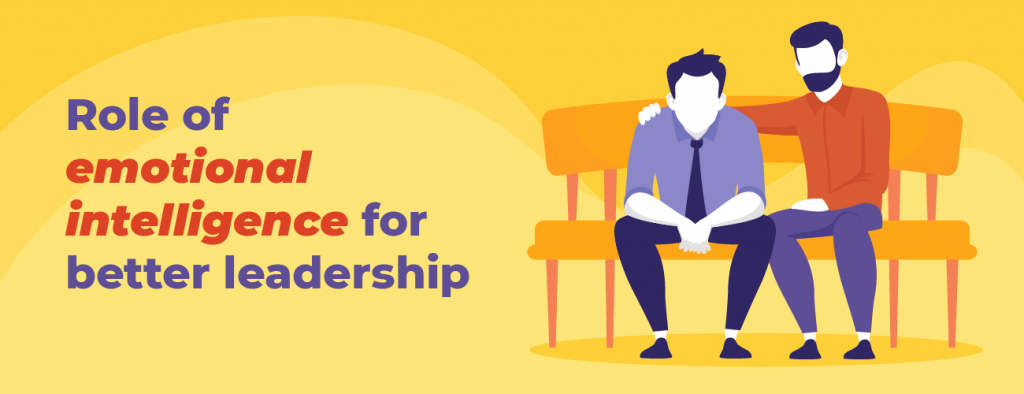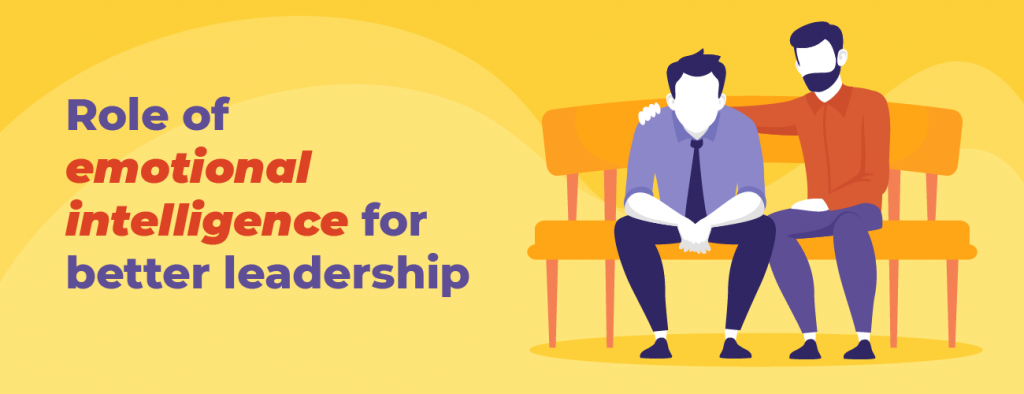
Role of emotional intelligence for better leadership

Leadership skill is a trait we learn with time, and it requires constant feedback and touch points. While bagging a job by displaying top skills is one part of the picture, on the other side, growing and learning by aspiring to be in a leadership position requires emotional intelligence, which is a whole different ball game.
Being a leader is about being efficient and effective at what you do, understanding and functioning in a team, and inspiring your teammates by being equipped to coach teams successfully, manage stress, deliver feedback, and collaborate with others by practising transformational leadership.
According to the Emergen Research trend tracker, Employees who had managers with high emotional intelligence were four times less likely to leave than those who had managers with low emotional intelligence in the workplace. Also, in their study of more than 2,000 managers from 12 large organizations, 81% of the competencies that distinguished outstanding managers were related to emotional intelligence.
What are the traits of an emotionally intelligent leader?
- Self-awareness – the ability to identify and understand one’s feelings, strengths, flaws, and values aids in enhancing leadership effectiveness.
- Self-regulation – the ability to manage one’s own emotions, thoughts, and behaviors in a constructive and goal-oriented manner through emotional intelligence training.
- Social awareness -the ability to perceive and understand the feelings and needs of others and promote empathy in leadership by lending ears to their points of view.
- Relationship management – the capacity to form and maintain strong relationships, communicate effectively, and resolve issues. Establishing rapport and trust is essential for successful teams. Leaders with high emotional intelligence and leadership success can forge strong bonds with team members.
Why is it important to be emotionally intelligent as a leader?
Emotional intelligence makes leaders more effective by enhancing self-awareness and empathy, improving communication, and fostering strong relationships. The benefits of emotional intelligence include helping leaders manage emotions, resolve conflicts, motivate teams, and create a positive work environment. It also aids in navigating stress and making balanced decisions, leading to better organizational performance.
Increased engagement with the team: Leaders need to communicate the vision, goals, and expectations to their teams. They must also be able to actively listen and understand their team members’ points of view. Employers who have displayed leadership development with high emotional intelligence are better able to communicate effectively with their teams because they can tailor their communication style to the demands of their audience. They can also read their team members’ emotions and tailor their speech accordingly, resulting in more productive and positive interactions.
Building solid relationships: Strong emotional intelligence is crucial for leaders, dramatically influencing employee engagement and retention. Leaders can also foster a supportive work atmosphere where employees feel valued and appreciated. This can result in higher job satisfaction, motivation, and engagement, translating into better performance and productivity.
- Conflict Management: One of the most remarkable qualities of an emotionally intelligent leader is controlling one’s emotions during a conflict. They can be calm and think through the situation without being involved in the conflict to deliver win-win solutions by practising emotional intelligence strategies.
- Decision-making: Leaders with high emotional intelligence can use their capacity to detect and understand their emotions to make better judgments. Studies state that 71% of employers value emotional intelligence more than technical skills when evaluating candidates. They can also use their ability to empathize with their teammates’ emotions to consider their points of view and needs when making decisions. This can result in better decisions more consistent with the organization’s goals and values.
- Motivating team members: Leaders with high emotional intelligence can inspire and motivate their teams to reach their objectives. They can use their abilities to identify and comprehend their team members’ emotions to foster a healthy and supportive working environment. This can result in increased performance, productivity, and job satisfaction.
How do you increase your emotional intelligence and leadership effectiveness?
- Listen actively and avoid judgment: A leader must listen to what the employees say and understand their emotions and opinions, even if they contradict their personal views. Emotional regulation in leaders is vital as this can create a safe space between the employer and the leader, gradually leading to effective communication between both parties.
- Connecting with employees on a personal level: When leaders acknowledge employees’ efforts and demonstrate their willingness to help, they feel connected to them individually, believing they are cared for. This leads them to try and work harder. Therefore, empathy and being “person-focused” can lead to increased productivity.
First-time leaders usually find it challenging to crack the empathy code. Still, it is not impossible to actively seek peer feedback while undergoing individual self-assessment and personality tests. Comparing the results will surface any blindspots or leadership gaps. These tests usually comprise a set of questions or situations to evaluate several facets of emotional intelligence, such as emotional self-awareness, emotional regulation in leaders, interpersonal interactions, and decision-making.
Emotional intelligence is a pivotal element in enabling effective leadership within organizations. Through the cultivation of emotional intelligence, leaders can bolster team dynamics, drive motivation, and realize improved outcomes.
The development of emotional intelligence benefits individual leaders and significantly contributes to an organization’s overall success. If you are aiming to build a culture of empathy in your leadership practices, we can help you achieve this. click here to learn more.






